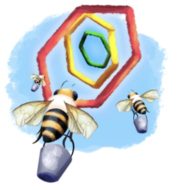A Basic Workshop Series with Three Meetings
When you plan a DIY workshop (see overview of workshops), consider this success approach. It was created by a library in Bayfield, WI, from our Fall 2022 cohort.
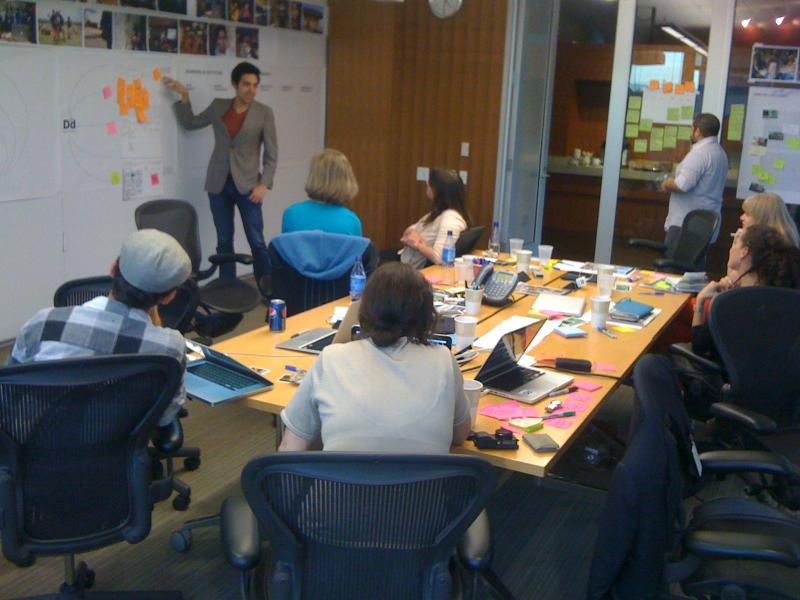
How it works
Once a week, a group of community members (perhaps 3-10 folks) come together to make something and get familiar with the tools. Often they meet at the library in person, but your library could also host a regular Zoom gathering if that is more your style. The first three meetings/weeks are the core of the series. After that, the group should have created a partial prototype that really works. If motivated, they might continue working to polish and launch the project publicly.
What the Workshop Series looks like
In brief, the first meeting provides an overview of the Hive Mechanic tool and a chance to try out some real games/stories that are made with it. It ends with a brainstorming session for what kind of project could be made for your community. The second meeting selects a project, brainstorms deeper, and uses index cards to visualize a branching story. The third builds a version in Hive Mechanic and explores how more advanced interactivity could bring the experience to life (e.g., points, variables).
Meeting One: The Introduction

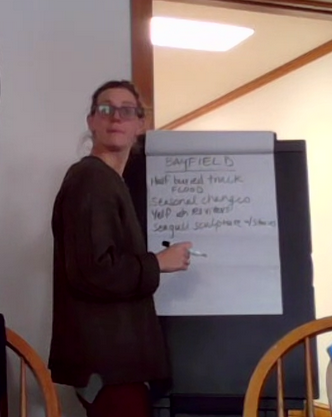
The first meeting will be an introduction to Hive Mechanic as a tool. Our game design experts often lead this session remotely over zoom, while participants gather in person with a projector. Workshop attendees will try demos of the tool and how it operates. Next, the local facilitator gets out the easel for brainstorming, and leads a short brainstorm of activities they could make for their community or places/things in the community to center an activity around.
After the short brainstorm, one of the workshop attendees will drive a guided demonstration of the tool to create a very quick and playable activity based on the brainstorm. This meeting ends with Q&A with the workshop attendees. The result of this workshop should be achieving an understanding of Hive Mechanic and inspire ideas for potential activities. This meeting will be roughly 90 minutes long.
Meeting Two: The Brainstorm
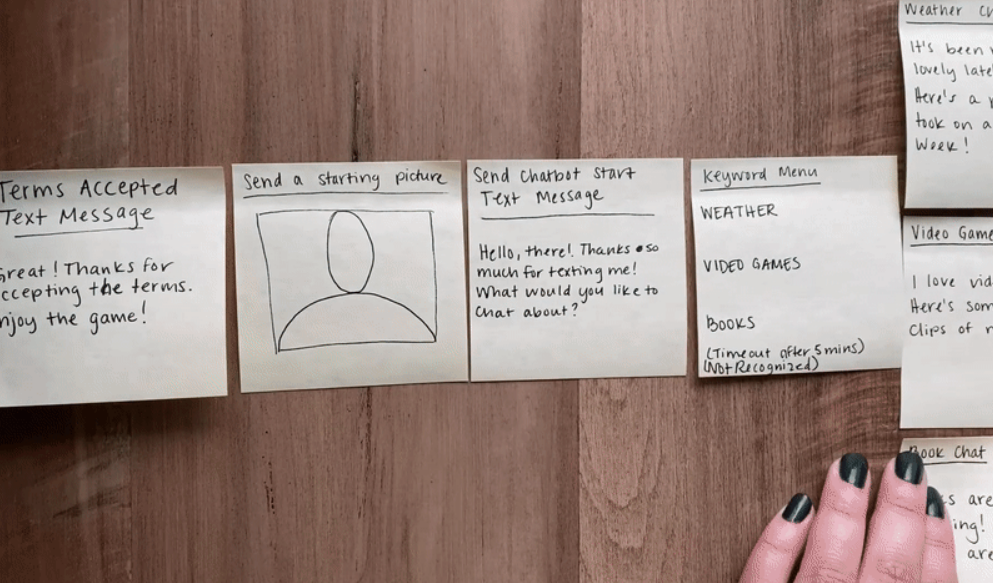
This session was done entirely with local library staff; no technical expertise is needed. It is essentially a brainstorming and group priority selection session. If you have a larger group of patrons at the workshop series, you can break off into smaller groups to think of ideas and return as a larger group towards the end to review and discuss ideas. The results of this workshop should be at least one solid idea for an activity which could be created for the community.
If participants are remote, brainstorming might take place using tools like Google Jamboard:
The goal is to narrow the likely project down to 2-3 concrete narratives before the end of the session. Resist the urge to pick a single project until you verify the tech approach in the next session. 60 minutes may be enough.
Meeting Three: Going Deeper
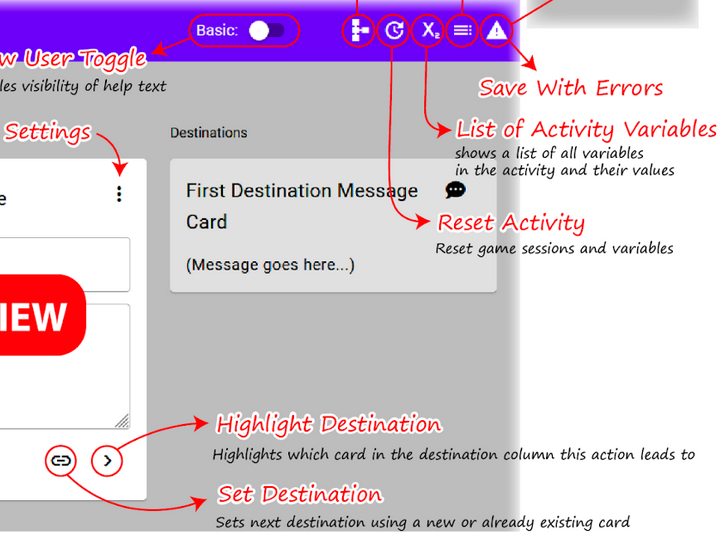
Start with a sanity check for each of your ideas, and how well they might work in Hive Mechanic. Ideally, a local member of your team might already have picked up enough to advise some of this. We also recommend bringing in our expert game designers for their feedback. This session may also introduce some of the more advanced possibilities for using Hive Mechanic.
We highly recommend focusing most of your time on active prototyping with the tool, or even showcasing experiments that bold and more tech-confident patrons have discovered on their own time.
By the end of the meeting, the group should look each other in the eyes and see if there is consensus on which implementation seems feasible, and where to go next to write the content. At this point, many groups will create Google Docs for their central script, and start gathering core photographs, images audio files. (Hint: naming your files carefully will save you time later!)
More Meetings?
A regular time to continue working can be invaluable. More meetings may be optional, but if members in the workshop group have a strong idea to fully create and publish they will come together.
Who to recruit?
Do you have a group or patrons that you could call together? An existing group or some community momentum is very helpful. Or do you know an audience that would be interested in working collaboratively? Often the specific workshop series is best imagined with a specific audience.
